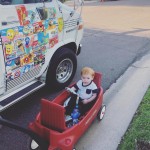I returned home two weeks ago from Vikingtown, a diversity and leadership camp. The four days, three nights with sixty students and ten teachers created one million smiles.
This was my first Vikingtown experience and I had zero clue what to expect. I nervously packed my sleeping bag (and six blankets) for the brisk Prescott 30 degree weather and wondered what the next few days had in store. I tried not to listen to the rumors because I wanted to have an open mind, but it was hard to ignore the murmurs this was the “crying camp.” Ugh, crying. I hate crying. Nevertheless, I packed one giant suitcase and drove up the mountain.
The next four days were a whirlwind of some tears but mainly growing and learning. While I can’t reveal the details, I can reveal this experience changed me. I changed as a teacher and as a person.
As a teacher, I had the opportunity to watch my students. We “watch” our kids everyday, but do we really watch them? Like really watch them? Four days in the cool Prescott mountains away from the distraction of texts, emails and social media gave both the kids and teachers a chance to be themselves. I spent hours watching kids think, problem solve, and interact with one another. The truly most impactful watching was observing students think about who they are, where they come from, and how they want to change their lives for the better. It was fascinating just to sit back and watch them grapple with the things they can control and letting go of the things they simply can’t. I watched them break down barriers and learn from one another. It was truly remarkable. It made me proud to be a teacher.
I also learned from my students. I like to think I know my kids. I read their essays, talk with them daily, and see them around campus. Not until I went to Vikingtown, did I realize how much invisible baggage our kids bring with them to school. This “trailer” as one of the other advisors calls it, can slow our kids or even worse drag them down. I started to realize how often I become frustrated when a kid won’t move at the pace I want him or her to or annoyed when they come to school tired and less than enthused to read The Crucible. However, after listening and learning from the Vikingtown delegates, I now stop and remind myself, “You don’t know what trailer they are dragging. Have patience and show them some love.”
As a person, Vikingtown gave me the opportunity to really think about myself. At Vikingtown, I was Leah for a change. I participated in the activities right alongside the kids. It was incredible to think about my goals, my past, my beliefs, my heritage. I had some real ah ha’s that can’t be found in the daily grind of life, but at Vikingtown, I found time to stop and reflect.
I came back energized with a renewed passion for teaching and more importantly, for my students. Now when I see their faces around campus, we greet each other with a knowing smile and a shared experience. The four days we spent together were life changing for them and for me.










Comments 6
What a wonderful reflection! I am so glad you went to Vikingtown and had this amazing experience.
I’m not going to lie, I was like is she from Minnesota?? JK
I would love to hear more about this. I think opportunities like this are what kids remember the rest of their lives. I remember in high school it was student council camp. But today I think we need more opportunities for more kids such as these. Thanks for sharing. Loved to read this.
Thank you for the kind words! Vikingtown is an adaptation of the Unitown or Anytown program. It focuses on diversity and leadership. It’s amazing!
This sounds like a transformative experience, and one that creates safe space our students and teachers in ways that most policies and practices can’t.
These types of opportunities are so rare! I wonder– how is this program funded at your school?
We fundraise quite a bit of the money as well as tax credit donations. It costs nearly $18,000 for the week and we try to fundraise as much as possible so that students do not have to pay to attend.
Thank you for sharing this piece. Observation and reflection are two key components of the Montessori philosophy. When I tell people I spend time observing my students in a variety of environments and reflecting before I start teaching, they seem to think I am wasting time. But when I can then tell them what lessons that child should get, why, and how they should be delivered…and how I need to prepare for that on a personal and professional level, they are amazed. Thank you for highlighting this in a different way.